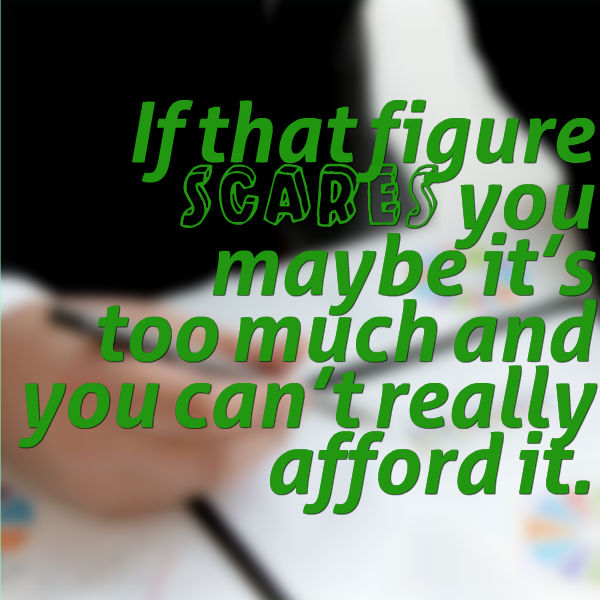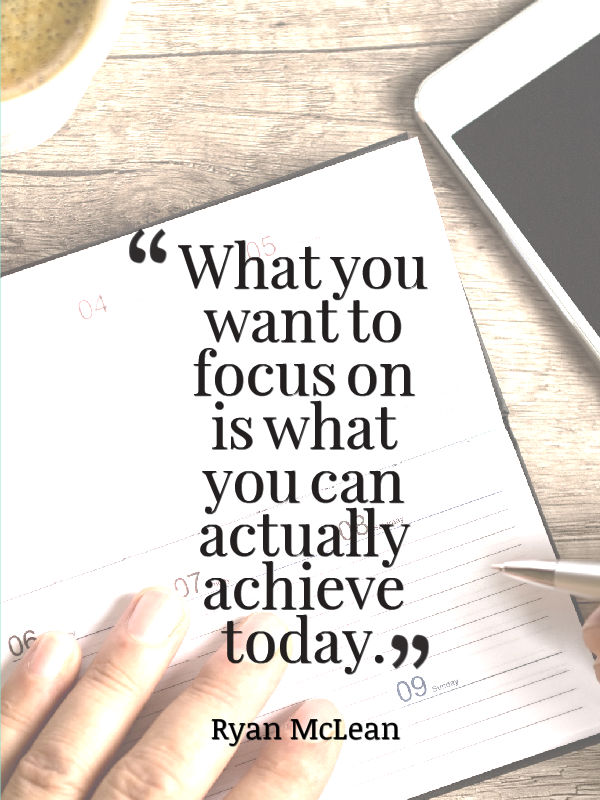Work Out What You Can Afford (Day 3) – 30 Day Property Journey
>Working out what you can afford in a property will equip you to make a smart investment decision that is more likely to move you towards your goals.
Welcome to the 30 day property journey. Over the next 30 days I am taking you on a journey showing you different techniques and different methods and activities that you can do to become a more confident investor and to get ready to buy your first property.
 Today we’re talking about how to work out how much you can afford to pay for a property.
Today we’re talking about how to work out how much you can afford to pay for a property.
We talked yesterday about finding out how much you can borrow by either using an online calculator, going to a bank or using my preferred method which is actually speaking to a mortgage broker.
Just because banks will lend you money doesn’t necessarily mean that’s how much you can afford or that’s how much you want to pay for a property. Let’s do an activity today and work out how much we can actually afford to pay for a property.
The first thing we are going to look at is if you’re purchasing a property that is going to be your home. The second thing we’re going look at is how much to purchase a property if you are actually going to invest and have a person renting that property.
What Sort Of Home Can You Afford?
Let’s assume that you are purchasing this property as your own home. The first thing you need to assess is how much your mortgage is going to be.
Your mortgage will depend on the purchase price of your property and will also depend on how much of the deposit you put down and as well as the other costs.
Simply put in the dollar amount that you’re going to pay for your property. This might be $400,000. This might be $300,000, $200,000, $1,000,000. It could be anything.
You then want to take away the deposit you’re putting down. This might be a deposit of $50,000 or a deposit of $100,000. So take that away from the purchase price of your property and that’s going to give you a rough indication of what your loan is going to be. It may vary from lender to lender because things like if you don’t have a full 20% deposit you have to pay lender’s mortgage insurance but this is going to give you a rough idea.
Then multiply the remaining loan by the interest rate. Currently as I’m recording this, interest rates are pretty low, around the 5% so you could times it by 5% or if interest rates are higher times it by 6%-8%. Find out what the interest rates are at the moment and do your calculation based off that for the most accurate result.
 This is going to give you an annual figure of how much interest you’re going to have to pay on your property. You can then divide that by 52 and that is going to give you your weekly mortgage repayments or you can divide it by 12 and that’s going to give you your monthly mortgage repayments.
This is going to give you an annual figure of how much interest you’re going to have to pay on your property. You can then divide that by 52 and that is going to give you your weekly mortgage repayments or you can divide it by 12 and that’s going to give you your monthly mortgage repayments.
Now add in:
- Maintenance – maybe $1000 a year.
- Home and Contents Insurance – maybe $500 to $1000 a year.
- Council rates – depending on your area that might be $1500 or $2000 a year.
- Bank fees – Speak to your mortgage broker about how much these might be. I use $300 as a very rough baseline.
- Water Rates – add in about $1000 a year for water rates depending on where you are.
- Body Corporate Fees – if you are in a unit complex you need to find out what the body corporate fees are and you need to add that as well.
We then divide this combined figure (interest rates plus cost) by 52 to get weekly or divide by 12 to get monthly.
If that figure scares you maybe it’s too much and you can’t really afford it.
Well then let’s start again and we’ll go back and we’ll look at a lower figure. Maybe you started at $400,000 and that’s just a bit too much for you so go back start at $300,000 and see whether that’s an affordable figure.
What Investment Property Can You Afford?
If you are actually going to purchase an investment property it’s going to be a little bit different because what you need to do is you also need to take rent into account.
The easiest way to do it (which is going to be very rough) is to simply do the figures as if you were buying your own home to get a weekly expense figure. Then all we do is we simply take 80% of rental income and minus the expenses from that income figure.
Let’s say all of our expenses come to $200 a week. Let’s say if the property rents for $200 a week we would take 80% of that so $160 a week and we can see that there is $40.00 a week as a loss there. That’s a really rough way to do it.
For a more accurate method I do actually have an episode on how to find out if a property is going to be a positive cash flow or how to calculate positive geared properties and you can see more details there.
You can also check out the Advance Property Calculator which is a tool I actually used to do all these calculations for me. This tool takes more stuff into account like vacancy rates and rental manager fees and things like that and you can really get an idea of what the cash flow of a property is going to be. That’s a part of On Property Plus at the moment but there is a free version coming up in the near future so check that out.
So that’s basically how you work out how much you can afford.
You start with your purchase price, you work out your interest rates, you add your expenses, and then if you got any rent obviously you take a portion of that away because you don’t have to pay that because someone else is paying that.
 What you really want to begin to work out is “where am I actually comfortable purchasing a property?”
What you really want to begin to work out is “where am I actually comfortable purchasing a property?”
Yes, banks may lend me $600,000 but I can’t actually afford that with the current job that I have? What can I afford as my own home or what can I afford as an investment property? And then let’s go and look at those things.
By working out what we can afford we are ensuring that we’re not looking outside of our price range then we are not wasting time thinking about and researching things that aren’t actually going to be any use for us in the near future.
What you want to focus on is what you can actually achieve today. What you can actually do. What you can actually afford to buy rather than wasting time on the long-term dream of buying that multi-million-dollar mansion.
That finishes today’s episode. In tomorrow’s episode we’re going to be looking at creating your deposit savings plan and some ways that you can go about doing that.
Today’s episode is brought to you by my eBook which is The Essential Guide To Buying Your First Property in Australia. It is going to go on the Amazon Kindle Store very soon, as soon as I get it formatted and ready for that. Kill that overwhelm that comes with trying to buy your first property, stop feeling flustered, stop having all those sleepless nights that you are having thinking about property and stop feeling unequipped to actually make this a reality. Almost everyone can achieve it and if other people have done it why can’t you? I really want to give you a step-by-step guide to be able to achieve it yourself and feel like it’s possible to achieve.
Check out The Essential Guide To Buying Your First Property In Australia today. Currently it is 75% off but that offer won’t last forever so check it out now.
Until tomorrow stay positive.
DISCLAIMER No Legal, Financial & Taxation Advice
The Listener, Reader or Viewer acknowledges and agrees that:
- Any information provided by us is provided as general information and for general information purposes only;
- We have not taken the Listener, Reader or Viewers personal and financial circumstances into account when providing information;
- We must not and have not provided legal, financial or taxation advice to the Listener, Reader or Viewer;
- The information provided must be verified by the Listener, Reader or Viewer prior to the Listener, Reader or Viewer acting or relying on the information by an independent professional advisor including a legal, financial, taxation advisor and the Listener, Reader or Viewers accountant;
- The information may not be suitable or applicable to the Listener, Reader or Viewer's individual circumstances;
- We do not hold an Australian Financial Services Licence as defined by section 9 of the Corporations Act 2001 (Cth) and we are not authorised to provide financial services to the Listener, Reader or Viewer, and we have not provided financial services to the Listener, Reader or Viewer.
"This property investment strategy is so simple it actually works"
Want to achieve baseline financial freedom and security through investing in property? Want a low risk, straightforward way to do it? Join more than 20,000 investors who have transformed the way they invest in property."
